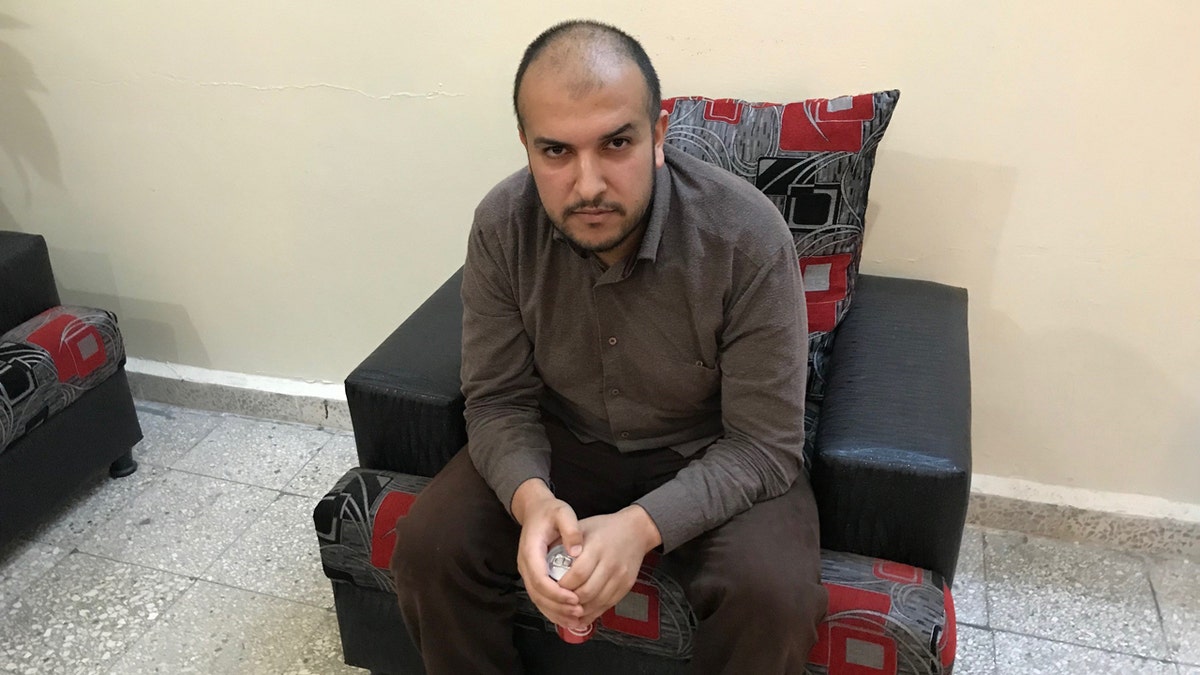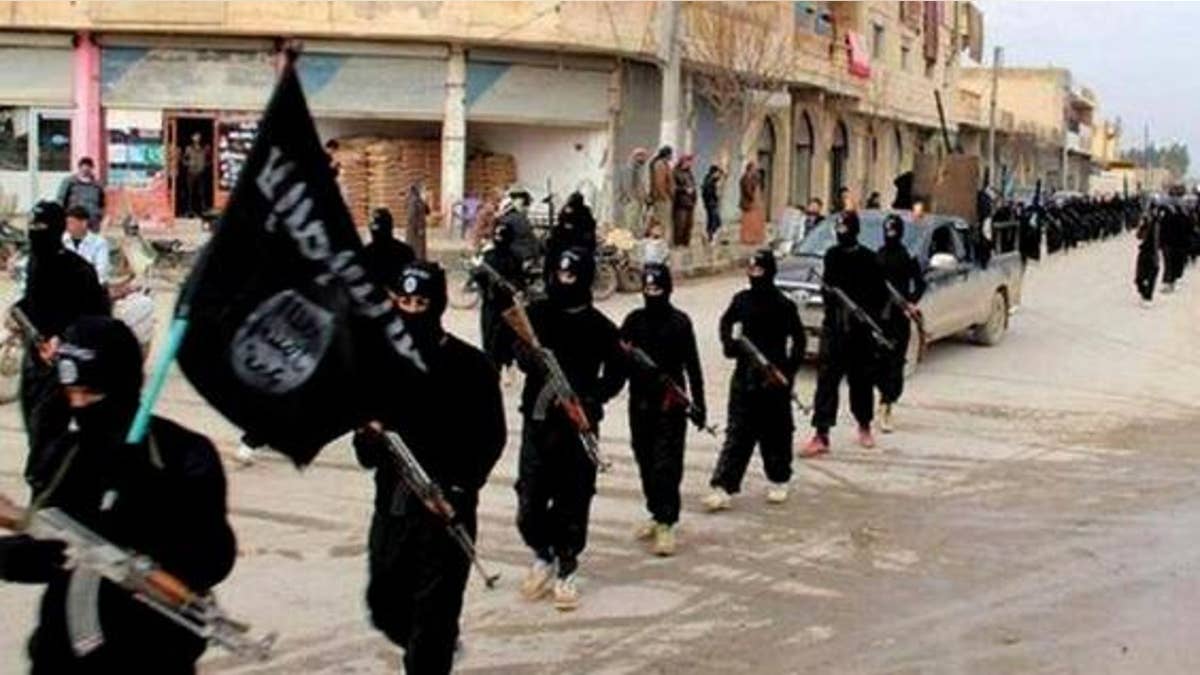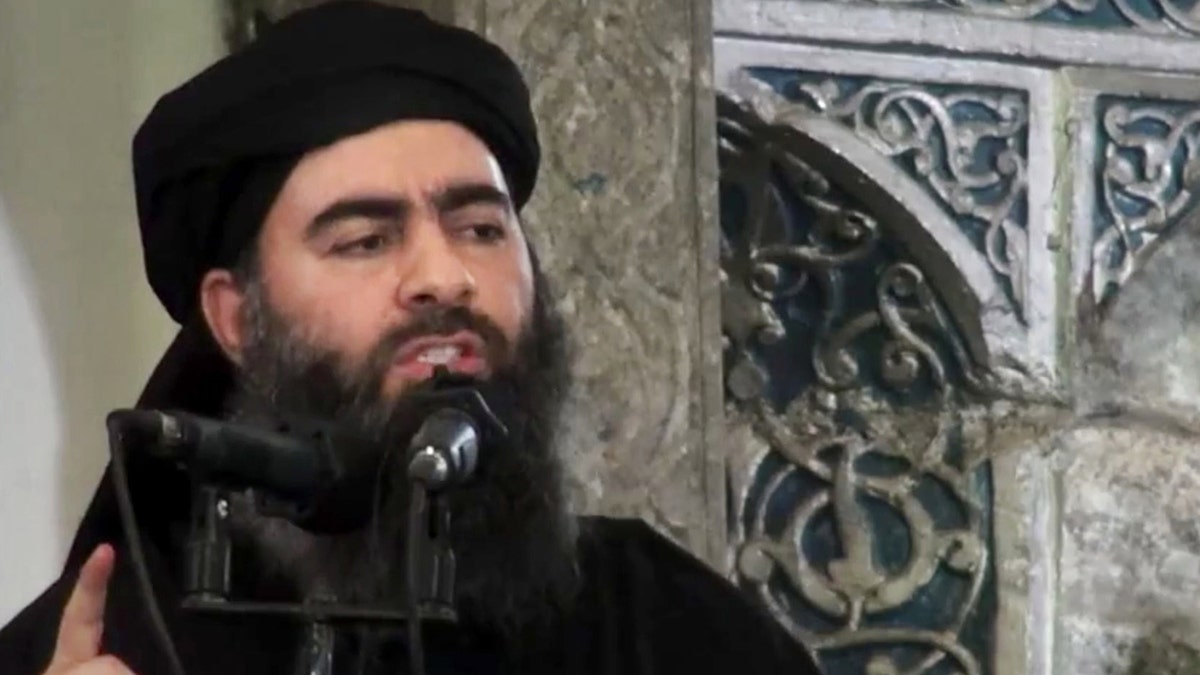
"ISIS is like the Mafia ... once you get in, you never come out," says Hamza Nmeie, a former fighter for the group. (Hollie McKay/Fox News)
QAMISHLI, Syria – Belgium native Hamza Nmeie, 27, claims to be one of few foreign fighters to have seen the barbaric and bloody rise of the Islamic State in Syria, long before the group was known to the world.
He arrived in the region fresh-faced in June, 2013 and signed up for what was then the Syrian al-Qaeda affiliate, known as al-Nusra. He then became among the first to pledge his way into the Islamic State (ISIS), he said, and witnessed the group’s rise and decline as the “caliphate” crumbled under a U.S.-led coalition effort in Iraq and Syria.
He surrendered to the U.S.-backed Syrian Democratic Forces (SDF) in Raqqa last September. Now, in an exclusive interview with Fox News from the SDF’s antiterror unit’s prison, Hamza is warning of more plots and splinter groups to crawl out from under the carcass of ISIS.
“ISIS is like the Mafia. Once you get in … you never come out.”
“Another group will come,” Hamza cautioned, saying fighters disgruntled with ISIS commanders were already in the process of planning breakaway terror groups before the fall of Raqqa, the so-called caliphate capital.
Hamza repeatedly emphasized in the interview that the ideology driving ISIS was “not going to stop,” and had permeated some circles so deeply that it would be next to impossible to defeat. He also said each new incarnation of the group brought a school of thought even more rigid than that of its predecessor.
A central tenet of ISIS’s brainwashing of new followers is its singular focus on the United States, Hamza said, in what he described as an “obsession” with America.
“It was the big enemy,” he said.
Hamza particularly remembers the ISIS celebrations after the 2014 beheading of American journalist James Foley, and how leaders used the gruesome event as “motivation.”

The terrorist army has been routed from its caliphate, but one jailed jihadist says it will regroup.
“It was to say, ‘Look how we are fighting the Americans,’” Hamza said, saying ISIS initially gained momentum after the formation of a coalition of 60-plus allied designed to defeat it. The coalition’s creation was spun by the ISIS propaganda machine to show how “strong” the mlitant group was against such a massive force.
Born to Moroccan parents in the idyllic countryside just outside Brussels, Hamza was well known in his community. Noted for his soccer and boxing skills, he last held a job with the DHL delivery service, he claimed, before setting off for Syria.
Hamza said he was radicalized in 2011, after being introduced to a Salafist group called Sharia4Belgium. That group called for the overthrow of democracy, and it urged young people to join ISIS abroad. Almost two years after he heeded the call and left for the battlefield, the organization would be formally designated a terrorist group by the Belgian state.
“There, we learned this ideology of jihad, we were told that there was no country in the world that was properly ruled by shariah. This was all new for me,” he said. “But in Syria, I saw and heard even more extreme things than I had heard in Belgium.”
Hamza claimed that his “extremist” tendencies at home had even caught the attention of local law enforcement, and that police came to question him just weeks before he fled, confiscating his passport.

ISIS leader Abu Bakr al-Baghdadi is in hiding, and his once-feared organization in tatters.
“But then I learned I could travel just with my ID,” Hamza explained.
He abruptly flew to Düsseldorf, Germany and then to Istanbul, Turkey, before meeting other Belgian recruits, in the southern province of Adana. From there they crossed into Syria -- they did so with the permission of Turkish border guards, he said.
Hamza was first placed at an “immigrants' location” in Idlib, which housed many Western fighters. After two weeks, he was sent for 40 days' training -- weapons, fitness, religious doctrine -- in the desert of Deir ez-Zor. From there, he was deployed to northern Syrian city of Aleppo to fight.
It was there, in the summer of 2013, that he first learned of the self-professed “caliph” Abu al-Baghdadi. And it was ISIS’s governor for the Syrian province of Aleppo, Amr al-Absi, who coerced him to declare his allegiance to the “son of the Prophet.”
Hamza said the shadowy leader, who remains the most wanted man in the world, even visited the “immigrants' location” at the time he was training to personally swear in the other ISIS recruits who had just broken away from al-Nusra.
While Hamza sought to play down his role as a frontline soldier during the interview, refusing to admit he'd killed anyone, an SDF intelligence official overseeing the prison said he was “so active,” and had played a leading role among the fighters.
Hamza said his group initially fought alongside the Free Syrian Army (FSA) against the regime. But relations soured later in 2013, after photographs of commanders alongside U.S. Sen. John McCain in Turkey started circulating. They were then instructed to turn their weapons on those who were once their “friends.”
Hamza also insisted that after 2014, FSA members set up black-market weapons deals in which they would sell arms -- including those issued by the U.S. and abandoned by the Iraqi Army -- to the highest bidder, even if they were their own “enemies” under the ISIS umbrella.
“They have no honor. They just want money,” Hamza said.
Hamza also set out to find an ISIS bride, also from Belgium, and claimed he received a $50 per month salary for himself, another $50 for his wife, and $35 for each child -- they had two. He said his family is now living in a displacement camp in Ain Essa, outside Raqqa.
Hamza claimed he has not received any visits or official correspondence from Belgian officials, and was eager to know of any news in the “outside world” regarding his fate. But it appears that Belgium -- and other Western countries with ISIS fighters held by the SDF -- don’t really want the headache of taking them back.
So Hamza, and others like him, exist in a kind of legal limbo. He has not been criminally charged, faces no trial, and is being held by captors who hope that representatives from the prisoners’ home countries will simply come and take them away.
For now, Hamza is confined to a solitary cell, to avoid attempts to radicalize the prisoners. Other ISIS members held here – who span a multitude of nationalities -- are given three square meals a day, a weekly checkup by a doctor and about an hour of daily “recreation” time, which includes outdoor access, soccer games, television and reading sessions.
This much Hamza does seem to know: He was wrong to join ISIS, and said he is “not an ISIS Muslim” anymore. He denounced the group’s brand as full of lies, and dubbed Baghdadi “an evil guy.”
But he also seemed aware that shaking his association with a group universally reviled nearly everywhere outside of its ranks has left him in a tough spot.
“ISIS is like the Mafia,” he said. “Once you get in … you never come out.”








































